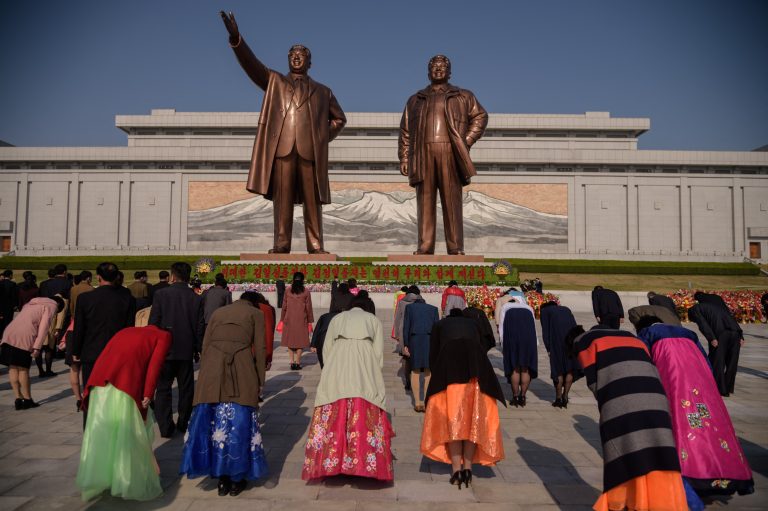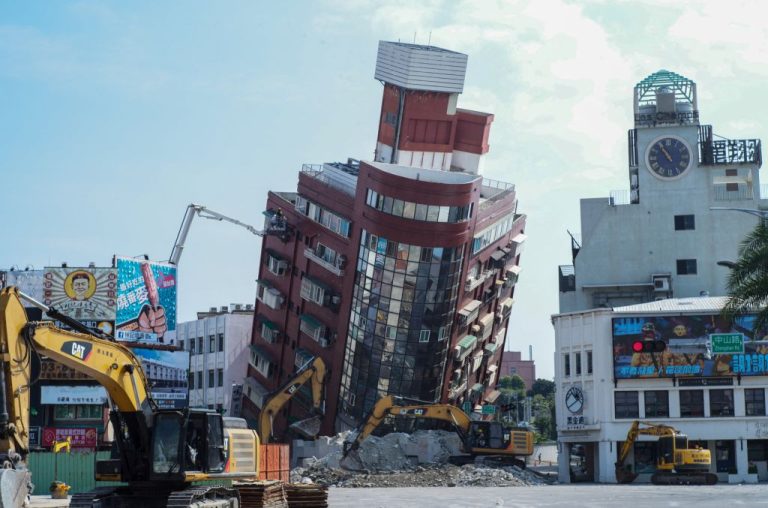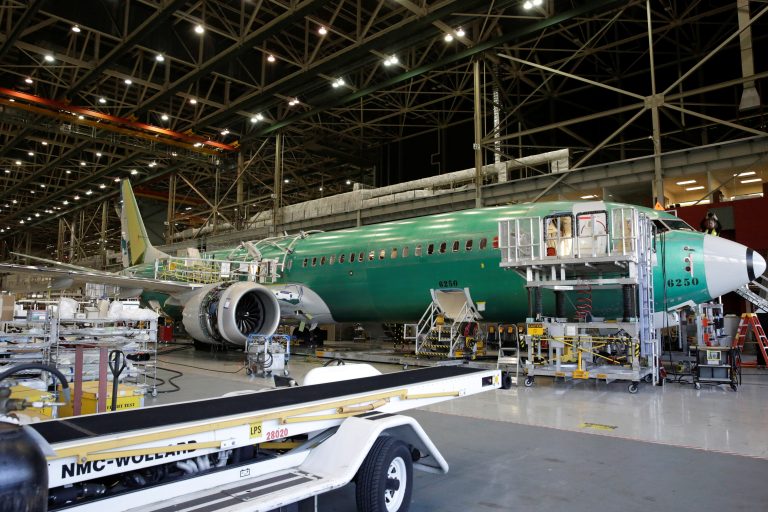Days of heavy rain have forced the evacuation of thousands of North Koreans and has resulted in the destruction of over one thousand homes while relentless rain flooded swaths of farmland in a country that is currently facing a worsening food shortage.
More than 500 millimeters of rain fell in parts of North Hamgyong from Sunday, August 1 through to Thursday, August 6 while areas of South Hamgyong exceeded the average monthly rainfall, the deputy head of the State Hydro-Meteorological Administration, Ri Yong Nam, told state broadcaster KRT.
North Korea’s state television reported that approximately 5,000 people nationwide were forced to evacuate as floods damaged over 1,100 homes. North Korean’s were told to take shelter in the nearby mountains should an emergency siren be heard.
The floods have inundated Sinuiju, a city of approximately 360-thousand people, where electricity has been cut off since the afternoon of the 3rd, a source told Radio Free Asia (RFA).
“Each neighborhood watch unit in Sinuiju held an emergency meeting and told residents to evacuate to nearby mountains or highlands should an emergency siren sound,” the source said.
Success
You are now signed up for our newsletter
Success
Check your email to complete sign up
North Korea’s state-run news agency, Korea Central News Agency (KCNA) has said that current “efforts are directed” at shoring up flood defenses at power plants, coal mines, farms, construction sites and fisheries.
Worsening food shortages
The rain comes after North Korea was forced to release emergency military rice reserves as its food shortage issues worsen. North Korea’s food shortage is being widely attributed to a confluence of circumstances including a recent heat wave, a sustained drought, COVID-19 supply chain disruptions and international sanctions.
No reports of mass starvation or social unrest have surfaced from the rogue regime but experts expect a further deterioration of the country’s food supplies until the autumn harvest.
It’s estimated that North Korea requires around 5-million tonnes of food to feed its 26-million citizens and that this year North Korea is short approximately one million tonnes.
At a closed-door parliamentary meeting of Seoul’s National Intelligence Service (NIS) it was revealed that an ongoing heat wave and drought have wiped out rice and corn fields as well as killing a large number of livestock in the region, according to Ha-Tae-keung, a politician who was in attendance at the meeting, Sky News reported.
Kim Byung-kee, another South Korean politician in attendance at the meeting, said that the price of rice has doubled in the country from early this year and has begun to soar again. Earlier this year reports surfaced that a single kilogram of bananas costs as much as US$45.00 in the country.
In addition to the extreme weather affecting crop yields, North Korea saw imports from neighboring China drop by approximately 90 percent between April and May this year, further exacerbating the issue.
Chinese data shows that total trade with North Korea has fallen by around 80 percent since last year following border closures due to the COVID-19 pandemic.
It’s suspected that paranoia over COVID-19 most likely contributed to North Korea closing its border with China in Jan. 2020, worsening an already dire food crisis and making it difficult for North Korean farmers to procure fertilizer.
Mark Barry, the associate editor of the International Journal on World Peace told RFA “My overall sense is that North Korea’s agriculture will always be highly vulnerable to flooding from heavy annual August rains unless its agricultural sector is rebuilt with the help of South Korea and other international actors.”
“North Korea must become as resistant and resilient to these floods as South Korea. China may offer significant technical assistance, but Kim Jong Un will resist such help because of suspicion of Chinese motives,” he said.
Earlier this year the North Korean leader was reported to have asked his officials and people to “wage another, more difficult ‘Arduous March’”
The words, “Arduous March” were last used to describe a period of time in the 1990s when the country suffered mass starvation after the collapse of the Soviet Union, North Korea’s only reliable ally, left the country without crucial aid.












